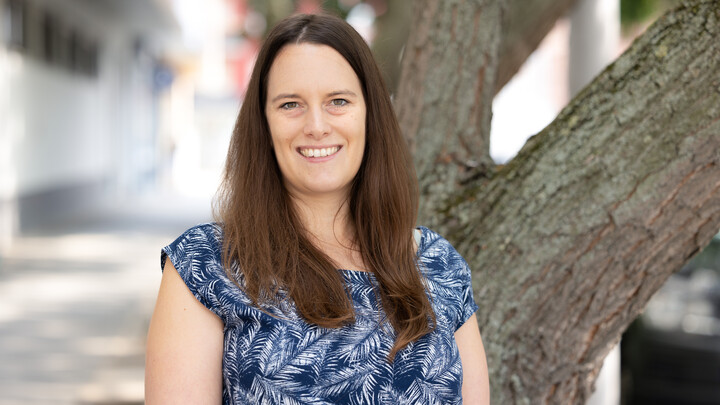Fitness for the Brain?
Professor Beatrice G. Kuhlmann holds the Chair of Cognitive Psychology and Cognitive Aging at the University of Mannheim and conducts research on different types of memory and how they change as people age healthily. FORUM asked her about strategies we can use for memory training and about whether crossword puzzles have any role to play.

FORUM: You carry out research on types of memory and how they change with age. How should we picture your research?
Kuhlmann: To begin with, we seek to understand how components of memory work in younger adults, that is, people between the ages of eighteen and twenty-five. Once we have results for that group, we look at older generations, at people who are sixty and older. We could show the participants in our experiments words on a screen, for instance. To make sure that contextual features are given that make the situation easier to recall later, the words could appear on the top or the bottom of the screen, be shown in different colors, or be spoken by different voices. When we test whether the participants can remember the words later, we see that for both groups, reproducing the original context improves memory performance: When they hear a word in the same voice as before, for example, the memory of it comes back.
FORUM: So does that mean older people need context to remember things?
Kuhlmann: Sometimes both old people and young people need context to jog their memory. But we can turn the context question on its head, too: There is strong evidence that the links between information and context erode progressively as people age. As accessing the context becomes harder, digging out memories becomes ever more difficult, too. That explains why semantic memory still works so well in old age – it is not context-dependent.
FORUM: What is semantic memory?
Kuhlmann: Different modes of remembering exist. Episodic memory is like the mind traveling back in time to something we remember because of a context like a conversation or a person. Semantic memory is condensed down from these episodic memories, as it were. When we learn and re-learn pieces of information in different contexts and connect them clearly, we have them in our semantic memory. We can recall that Berlin is the capital of Germany without needing context.
FORUM: Does memory performance start to decline at a certain point in time?
Kuhlmann: It is difficult to estimate a precise timescale because adults in between these two age groups (twenty-five to sixty years old) are underrepresented in studies since they have less time to take part in research, for instance because of work and family commitments. But we do know that some aspects of memory begin to decline from as early as age fifty. Studies have also shown that retirement and declining memory performance are often linked. There are genetic factors that make memory decline more likely, of course, but putting timescales on that is more challenging.
FORUM: Do things like crossword puzzles help with memory training?
Kuhlmann: Crossword puzzles don’t help as much as people tend to think: Studies with older people show that they get better at the tasks practiced, but few transfer effects are seen. However, it is fascinating to see that older adults still can boost their performance on cognitive tasks like this and to see just how well semantic memory still works later in life. What really helps a lot are reading, going to the theater, and sustaining long conversations. Or, for example, writing a shopping list but trying to find everything in the supermarket without looking at it first and then only checking at the end if anything is still missing. Actively challenging yourself like that.
FORUM: Apart from this test, is there anything else people can do to keep their memory in good working order as they age?
Kuhlmann: The main factors that influence memory positively are exercise, a Mediterranean diet, and optimism, too – studies have shown that older test subjects performed better when they knew it was possible that they would do well on a task. This was also true the other way around: A negative prognosis led to poorer results.
FORUM: What are you currently researching?
Kuhlmann: We are currently looking at whether learning in the morning versus in the evening makes a difference for older adults. Our experimental design leaves twelve hours between the learning and testing phases, and sleep if applicable. So far, we have been observing better performance in adults who complete the learning phase in the evening and take the memory test the following morning. We are currently probing the exact factors underlying this improved performance – using fitness trackers as well as other tools.
Interview: Luisa Gebhardt / October 2022
Beatrice G. Kuhlmann studied psychology at the University of Mannheim and completed a Ph.D. in Cognitive Psychology at the University of North Carolina in Greensboro (USA) in 2013. On her return to Germany, she initially conducted research at Heinrich Heine University, Düsseldorf before taking up a junior professorship of cognitive psychology with a research focus on cognitive aging at her alma mater, the University of Mannheim. Since 2018, she has been the principal investigator of the Emmy Noether Research Group “Source Forgetting in Younger and Older Adults” and since 2020, she has held a full professorship.
